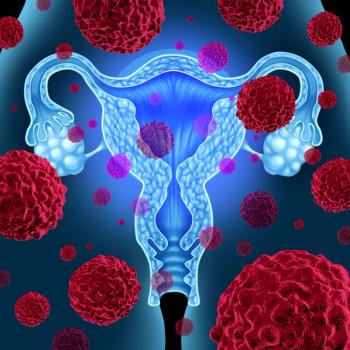
HPV Vaccine Not Associated With Multiple Sclerosis
Vaccines including that for HPV, which helps prevent cervical cancer, show no association at all with multiple sclerosis or other CNS demyelinating syndromes.
Vaccines including that for the human papillomavirus (HPV), which helps prevent cervical cancer, show no association at all with multiple sclerosis or other central nervous system demyelinating syndromes (CNS ADS), according to a new study.
One previous report has shown a small increased risk of adult-onset multiple sclerosis after administration of the hepatitis B vaccine, and several case reports have been reported of onset of CNS ADS 2 to 4 weeks following HPV vaccine administration. However, other studies have shown no association between vaccines and these syndromes. Researchers led by Annette Langer-Gould, MD, PhD, of Kaiser Permanente Southern California in Pasadena, conducted a nested case-control study using data from Kaiser Permanente’s database in order to better elucidate any possible connections between vaccinations and adult-onset demyelinating syndromes. Results were
The study included 780 incident cases of CNS ADS (most commonly multiple sclerosis, 54.7%), along with 3,885 controls. Of that total cohort, 92 cases and 459 controls were females aged 9 to 26 years, which is the indicated age range for HPV vaccination. The analysis showed no association between the HPV vaccine and the risk of CNS ADS up to 3 years after vaccination, with an odds ratio of 1.05 (95% CI, 0.62-1.78). The authors did note there was a statistically non-significant trend toward an increased risk of multiple sclerosis, but not of other syndromes, within the first 3 months following HPV vaccination.
Furthermore, there was no association between the hepatitis B vaccine and CNS ADS, with an odds ratio of 1.12 (95% CI, 0.72-1.73). When taken together, the odds ratio for any vaccine and CNS ADS was 1.03 (95% CI, 0.86-1.22). There was, however, an increased risk for CNS ADS within the first 30 days after any vaccination only among those individuals younger than 50 years, with an odds ratio of 2.32 (95% CI, 1.18-4.57).
The lack of association beyond 30 days, the authors wrote, argues against a causal relationship between vaccines and CNS ADS onset “because the risk in the vaccinated group should remain elevated regardless of whether the time window between exposure and clinical disease expression is defined as 15 days or 3 years.” They added that these findings are consistent with the idea that vaccines act as a pro-inflammatory cofactor in people with “subclinical autoimmunity because this mechanism would be expected to hasten symptom onset but not change the long-term risk of developing [multiple sclerosis or clinically isolated syndrome].”
They concluded that this study overcomes much of previous attempts’ methodological flaws, but it remains underpowered to answer every question on the topic definitively. Still, they wrote, the lack of association seen here does not warrant any change to vaccine policy.
Newsletter
Stay up to date on recent advances in the multidisciplinary approach to cancer.















































